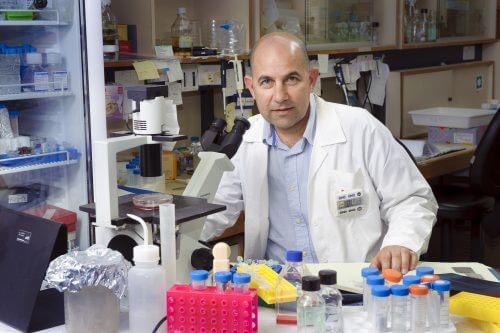A study conducted at the Technion outlines for the first time a central control pathway that determines the fate of type B cancerous lymphocytes. The study, recently published in the journal Cell Reports, was conducted by doctoral student David Ben Amo under the guidance of Prof. Doron Melamed from the Rapaport Faculty of Medicine at the Technion.

Lymphocytes are white blood cells that work mainly in the lymphatic system, hence their name. Their main function: identifying viruses and bacteria and destroying them. Type B lymphocytes (B cells) are cells that produce dedicated antibodies, adapted to the specific bacteria/virus attacking the body, hence their importance.
The problem is that in some cases these cells develop as cancer cells. In these cases it is of course important that they be destroyed by the immune system in a process called, in evolutionary terms, negative selection: self-elimination of factors harmful to the organism. However, although the body knows how to destroy disturbed cells that may harm it, these cells sometimes manage to escape this vital mechanism.
The Technion researchers, led by Prof. Doron Melamed from the Rapaport Faculty of Medicine, have now for the first time mapped the pathway that "saves" the cancerous B cells from death. They showed that several factors are involved in this pathway: RNA molecules of the miR17-92 type, the control gene c-Myc and the Pten gene. All of these control the activation of the central pathway (PI3K) that "cultivates" type B lymphocytes and prevents their elimination if they are cancerous. Furthermore, they discovered a self-reinforcing circuit that protects the cell from its elimination, i.e. from the negative selection.
The good news is that since PI3K is a well-known enzyme that is already being used as a target in the treatment of cancerous B lymphocytes, the researchers now propose to examine the specific action of said control pathway. In their estimation, disrupting the control pathway will block the cycle of self-amplification, activate the negative selection mechanism and prevent the survival of cancer cells.

One response
Pretty